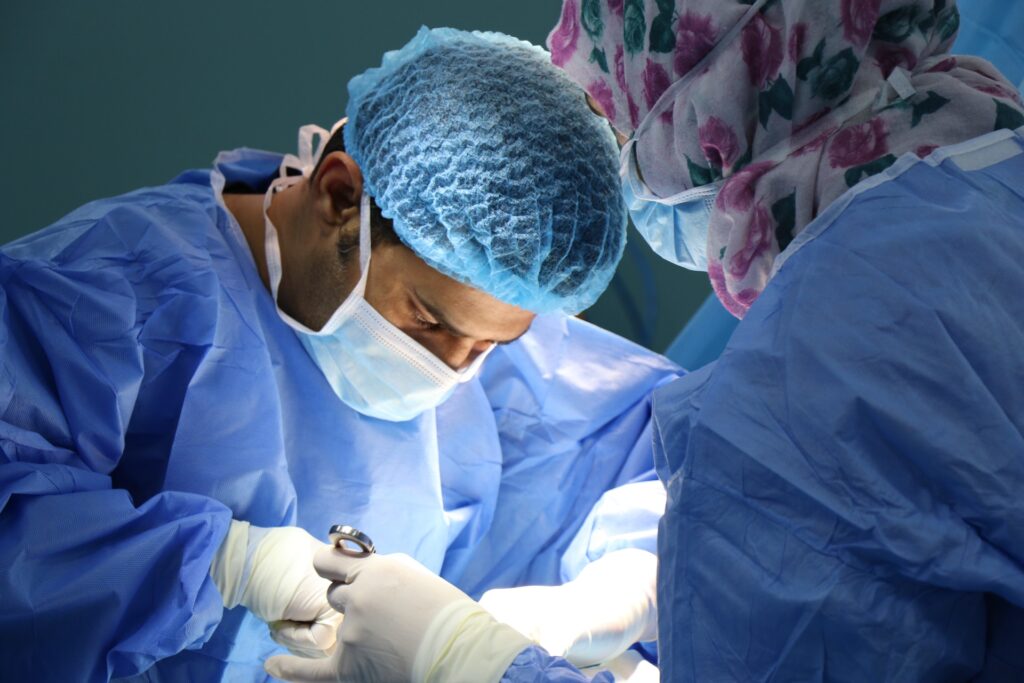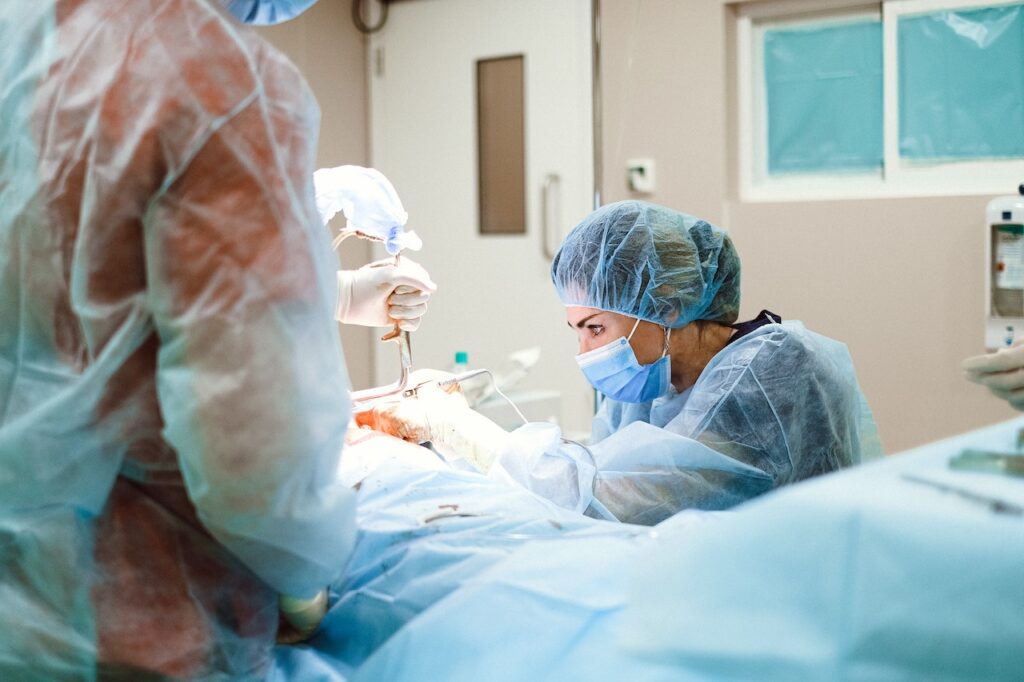Open heart surgery is a complex medical procedure that requires a highly skilled team of healthcare professionals, specialized equipment, and a significant amount of resources. The cost of open heart surgery can vary widely depending on a number of factors, including the type of surgery, the hospital where the surgery is performed, the surgeon’s fees, and the patient’s insurance coverage.
For patients who are considering open heart surgery, understanding the cost of the procedure is an important part of the decision-making process. In this article, we will explore the factors that can influence the cost of open heart surgery, as well as strategies for managing the financial burden of the procedure.
Key Takeaways
- The cost of open heart surgery can vary widely depending on a number of factors, including the type of surgery, the hospital where the surgery is performed, the surgeon’s fees, and the patient’s insurance coverage.
- Patients who are considering open heart surgery should be aware of the potential financial burden of the procedure and explore strategies for managing the cost.
- Options for managing the cost of open heart surgery may include negotiating with healthcare providers, seeking financial assistance, and exploring alternative treatment options.
Understanding Open Heart Surgery
Open heart surgery is a procedure that involves opening the chest to access the heart. The surgery is performed under general anesthesia, and the patient is connected to a heart-lung bypass machine during the procedure. This machine takes over the function of the heart and lungs while the surgery is being performed.
During open heart surgery, the surgeon makes an incision in the chest and separates the breastbone to access the heart. Depending on the type of surgery being performed, the surgeon may repair or replace a heart valve, perform a coronary artery bypass, or repair a defect in the heart.
Minimally invasive heart surgery is an alternative to traditional open heart surgery. This type of surgery involves making smaller incisions in the chest and using specialized instruments to perform the procedure. Minimally invasive heart surgery may be an option for some patients, but it is not suitable for all types of heart surgery.
Coronary artery bypass surgery is a common type of open heart surgery. This procedure involves using a blood vessel from another part of the body to bypass a blocked or narrowed coronary artery. This improves blood flow to the heart and can relieve symptoms such as chest pain.
Heart valve surgery is another type of open heart surgery. This procedure may involve repairing or replacing a heart valve. Valve repair is often preferred over valve replacement, as it preserves the natural valve and reduces the risk of complications. Valvuloplasty is a type of heart valve repair that involves reshaping the valve with a balloon catheter.
Robot-assisted heart valve surgery is a newer type of surgery that uses a robotic system to assist the surgeon during the procedure. This type of surgery may offer benefits such as smaller incisions, less blood loss, and faster recovery times.
Annuloplasty is a type of heart valve repair that involves tightening the ring around the valve to improve its function. This procedure may be performed in conjunction with other heart surgeries, such as valve repair or replacement.
Open heart surgery is typically performed in an operating room under sterile conditions. The surgery may take several hours, and the patient will need to stay in the hospital for several days afterward to recover. The cost of open heart surgery can vary depending on the type of surgery being performed and the location of the hospital.
Potential Risks and Complications
Open heart surgery is a complex and invasive procedure that involves significant risks and potential complications. While the vast majority of patients experience successful outcomes, it is important to understand the potential risks and complications associated with this procedure.
Risks and Infection
Like any surgery, open heart surgery carries a risk of infection. The risk of infection can be minimized by following strict hygiene protocols before, during, and after surgery. Patients may also be given antibiotics to reduce the risk of infection.
Anesthesia and Stroke
Anesthesia is necessary for open heart surgery, but it also carries risks. Anesthesia can cause complications such as stroke, especially in older patients or those with pre-existing medical conditions. However, the risk of stroke is relatively low, and the benefits of anesthesia usually outweigh the risks.
Blood Clots and Heart Attack
Blood clots can form during or after open heart surgery, which can lead to heart attack or stroke. Patients may be given blood thinners to reduce the risk of blood clots.
Bleeding and Arrhythmia
Bleeding is a potential complication of open heart surgery, and patients may require blood transfusions. Arrhythmia, or irregular heartbeat, is also a potential complication. However, most arrhythmias can be managed with medication or other treatments.
Death and Blockage
Although rare, death is a potential complication of open heart surgery. Blockage of the coronary arteries is also a potential complication, which can lead to a heart attack or other serious complications.
Chest Pain and Surgery Risks
Chest pain is common after open heart surgery, and patients may require pain medication. Other potential surgical risks include damage to surrounding tissues and organs, and complications related to the use of cardiopulmonary bypass.
Aneurysms and Blood Loss
Aneurysms, or bulges in the walls of the blood vessels, are a potential complication of open heart surgery. Blood loss is also a potential complication, and patients may require blood transfusions during or after surgery.
In summary, open heart surgery is a complex and invasive procedure that carries significant risks and potential complications. While the vast majority of patients experience successful outcomes, it is important to understand the potential risks and complications associated with this procedure.
Preparation for the Surgery
Preparing for open heart surgery is a crucial step in ensuring a successful outcome. The patient will need to undergo several tests and make certain lifestyle changes to prepare for the procedure.
Medical Tests
The patient will undergo a series of medical tests to evaluate their overall health and determine if they are a good candidate for surgery. These tests may include blood tests, electrocardiogram (ECG), echocardiogram, chest X-ray, and a computed tomography (CT) scan.
Medications
The patient will need to inform their doctor of any medications they are currently taking, including over-the-counter drugs and supplements. Some medications may need to be stopped or adjusted prior to surgery.
Heart Disease
If the patient has heart disease, they may need to undergo additional tests or procedures to manage their condition before surgery.
Smoking
Smoking can increase the risk of complications during and after surgery. Patients who smoke will need to quit smoking several weeks before surgery.
Personal Hygiene
The patient will need to shower with an antiseptic soap the night before and morning of the surgery to reduce the risk of infection.
Clothing
The patient should wear comfortable, loose-fitting clothing on the day of the surgery. They should also avoid wearing any jewelry or makeup.
Advance Directive
Patients should consider creating an advance directive, which outlines their wishes for medical treatment in case they are unable to make decisions for themselves.
Personal Items
The patient should bring a list of their current medications, insurance information, and any necessary personal items, such as eyeglasses or dentures, to the hospital on the day of the surgery.
Overall, preparing for open heart surgery involves a combination of medical tests, lifestyle changes, and personal preparations. By following these guidelines, patients can help ensure a successful outcome.
The Role of the Surgeon
The surgeon is the most crucial entity in the open heart surgery process. They are responsible for overseeing the entire operation, from making the initial incision to closing up the patient after the surgery is complete. The surgeon must have a deep understanding of the patient’s condition and the specific procedure that will be performed.
During the surgery, the surgeon will work closely with the rest of the surgical team to ensure that everything goes smoothly. They will be responsible for performing any necessary repairs or replacements, such as grafts or stents, and monitoring the patient’s vital signs throughout the procedure.
The surgeon’s experience and expertise are critical in determining the success of the surgery. A skilled surgeon can reduce the risk of complications and ensure that the patient has the best possible outcome. However, it is important to note that the surgeon’s role is not limited to the actual surgery itself. They must also work closely with the patient before and after the procedure to ensure that they are fully informed and prepared for what to expect.
In some cases, the surgeon may also be responsible for treating aneurysms that are discovered during the surgery. This requires a high level of skill and expertise, as aneurysms can be very dangerous if not treated properly.
Overall, the surgeon plays a critical role in open heart surgery, and their experience and expertise are essential to ensuring a successful outcome for the patient.
Post-Surgery Recovery and Rehabilitation
After open heart surgery, patients will need to spend some time in the ICU (intensive care unit) before moving to a regular hospital room. The length of the hospital stay will vary depending on the patient’s condition and the type of surgery they underwent.
During the hospital stay, patients will be closely monitored for any signs of complications or infections. Pain management will also be a priority, and patients will be given medication to help manage their pain.
Once the patient is stable enough, they will begin cardiac rehabilitation. This typically involves physical activity, such as walking, and may also include physical therapy. The goal of cardiac rehabilitation is to help patients regain their strength and mobility, and to reduce the risk of future heart problems.
Patients will need to continue with their rehabilitation and physical activity after they are discharged from the hospital. This may involve working with a physical therapist or participating in a cardiac rehabilitation program.
It is important for patients to follow their doctor’s instructions and to take any prescribed medications as directed. They should also be mindful of their diet and make any necessary changes to support their recovery.
Overall, post-surgery recovery and rehabilitation can be a challenging process, but with the right care and support, patients can successfully regain their health and well-being.
Dealing with Heart Conditions
When it comes to heart conditions, early detection and treatment are key. Many heart conditions can be managed with medication and lifestyle changes, but in some cases, surgery may be necessary. Open heart surgery is a complex procedure that involves opening the chest to access the heart. It is typically reserved for cases where other treatments have failed or are not an option.
Heart conditions that may require open heart surgery include heart valve disease, heart failure, regurgitation, and congenital heart defects. In some cases, a heart transplant may be necessary.
The cost of open heart surgery can vary widely depending on a number of factors, including the hospital, the surgeon, and the patient’s insurance coverage. Without insurance, the cost of open heart surgery can easily exceed $100,000. However, many insurance plans will cover the majority of the cost, leaving the patient responsible for a much smaller portion.
It is important for patients with heart conditions to work closely with their doctors to manage their condition and explore all treatment options. In some cases, lifestyle changes such as diet and exercise can help prevent or manage heart disease. For those who require surgery, it is important to choose a qualified surgeon and hospital with a good track record of success.
Understanding the Cost of Open Heart Surgery
Open heart surgery is a complex medical procedure that is often expensive. The cost of open heart surgery can vary depending on several factors such as the type of surgery, the hospital, and the surgeon’s experience. It is essential to understand the cost of open heart surgery to make informed decisions about the procedure.
Cost of Open Heart Surgery
The cost of open heart surgery can range from $50,000 to $200,000 or more. The cost of the procedure is influenced by several factors, including the type of surgery, the hospital, and the surgeon’s experience. Patients should expect to pay more for complex surgeries and for surgeries performed by experienced surgeons.
Insurance Coverage
Most insurance plans cover open heart surgery, but the amount of coverage can vary. Patients should check with their insurance providers to determine the extent of their coverage. Insurance plans may cover some or all of the cost of the procedure, but patients may be responsible for paying a deductible or coinsurance.
Coinsurance
Coinsurance is the percentage of the total cost of the procedure that the patient is responsible for paying. The coinsurance amount can vary depending on the insurance plan. Patients should check with their insurance providers to determine their coinsurance amount.
Discounts
Hospitals and surgeons may offer discounts for open heart surgery. Patients should inquire about any available discounts when discussing the procedure with their healthcare providers. Some hospitals may offer discounts for patients who pay for the procedure in cash.
In conclusion, understanding the cost of open heart surgery is essential for patients to make informed decisions about the procedure. Patients should check with their insurance providers to determine their coverage and coinsurance amounts. They should also inquire about any available discounts when discussing the procedure with their healthcare providers.
Lifestyle Changes After Surgery
Open heart surgery is a major procedure that involves significant lifestyle changes to ensure a successful recovery. Patients who undergo this surgery need to make adjustments to their daily routine to promote healing and prevent complications.
One of the most important lifestyle changes after open heart surgery is quitting smoking. Smoking can increase the risk of complications such as blood clots, infections, and respiratory problems. Patients who quit smoking after surgery can reduce their risk of these complications and improve their overall health.
Physical activity is another important aspect of post-surgery recovery. Patients should gradually increase their activity levels as they heal, starting with short walks and light exercises. Regular physical activity can help improve cardiovascular health, reduce stress, and promote overall well-being.
In addition to quitting smoking and increasing physical activity, patients may also need to make dietary changes after open heart surgery. A heart-healthy diet can help reduce the risk of complications and improve overall health. This may include reducing sodium intake, increasing fiber intake, and avoiding processed foods and sugary drinks.
Overall, lifestyle changes after open heart surgery are essential for a successful recovery. Patients who make these changes and follow their doctor’s instructions can greatly improve their chances of a full recovery and a healthy future.
Medications After Surgery
After open heart surgery, the patient will be prescribed medications to help manage pain and prevent complications. The specific medications prescribed will depend on the individual patient’s needs and medical history.
One common medication prescribed after open heart surgery is pain medication. This may include opioids such as morphine or fentanyl, or non-opioid medications such as acetaminophen. Pain medication is typically given intravenously in the hospital and may be continued in pill form after the patient is discharged.
Another important medication prescribed after open heart surgery is warfarin or other blood-thinning medications. These medications help prevent blood clots from forming in the veins and arteries around the heart. Patients will need to have regular blood tests to monitor their levels of these medications and adjust the dosage as needed.
In addition to pain medication and blood-thinning medications, patients may also be prescribed other medicines to manage specific symptoms or conditions. For example, patients with high blood pressure may be prescribed medications to help lower their blood pressure, while patients with diabetes may need insulin or other medications to manage their blood sugar levels.
It is important for patients to follow their doctor’s instructions carefully when it comes to taking medications after open heart surgery. Patients should never stop taking their medications without first consulting their doctor, as this can lead to serious complications. Additionally, patients should be aware of any potential side effects of their medications and report any unusual symptoms to their doctor right away.
Other Relevant Information
Aside from the cost of open heart surgery, there are other factors that patients should consider before undergoing the procedure. This section provides information on some of the common aspects related to open heart surgery.
General Anesthesia
Open heart surgery is performed under general anesthesia, which is a type of medication that makes the patient unconscious and unable to feel pain during the procedure. The cost of general anesthesia is usually included in the overall cost of the surgery.
Blood Flow
During open heart surgery, the heart is stopped, and blood flow is temporarily diverted to a heart-lung machine. This machine oxygenates the blood and pumps it back into the body. The cost of using a heart-lung machine is also included in the overall cost of the surgery.
Pacemaker
Some patients may require a pacemaker after open heart surgery. A pacemaker is a small device that is implanted under the skin of the chest to help regulate the heartbeat. The cost of a pacemaker is not included in the overall cost of the surgery and can range from $2,500 to $6,000.
Aortic Valve
If a patient has a narrowed or blocked aortic valve, it may need to be replaced during open heart surgery. The cost of an aortic valve replacement can range from $30,000 to $50,000.
Blocked Artery
If a patient has a blocked artery, they may require a coronary angioplasty during open heart surgery. This procedure involves inflating a small balloon inside the artery to widen it and improve blood flow. The cost of a coronary angioplasty is typically included in the overall cost of the surgery.
Chronic Obstructive Pulmonary Disease and Diabetes
Patients with chronic obstructive pulmonary disease (COPD) or diabetes may require additional monitoring during open heart surgery. The cost of this monitoring is usually included in the overall cost of the surgery.
Anesthetics
Patients may experience muscle pain after open heart surgery due to the use of anesthetics. The cost of pain management medication is typically included in the overall cost of the surgery.
Ventilator
After open heart surgery, patients may need to be placed on a ventilator to help them breathe. The cost of using a ventilator is typically included in the overall cost of the surgery.
Cusps
If a patient requires a valve replacement during open heart surgery, the number of cusps in the old valve will determine the cost of the replacement valve. A valve with three cusps is less expensive than a valve with four cusps.
Shortness of Breath
Patients may experience shortness of breath after open heart surgery due to the stress on the body during the procedure. The cost of additional testing or treatment for shortness of breath is typically included in the overall cost of the surgery.
Overall, patients should discuss all aspects of open heart surgery with their healthcare provider to fully understand the potential risks, benefits, and costs associated with the procedure.
Frequently Asked Questions
What is the average cost of open heart surgery in the United States?
The average cost of open heart surgery in the United States is around $324,000, according to a report by the National Bureau of Economic Research. However, the cost can vary depending on the type of surgery, the hospital, and the location.
How much does valve replacement surgery cost for open heart surgery?
Valve replacement surgery for open heart surgery can cost between $80,000 and $200,000, depending on the type of valve used and the hospital. The cost can also vary depending on the location.
Can Medicaid cover the cost of open heart surgery?
Yes, Medicaid can cover the cost of open heart surgery for eligible patients. However, the coverage may vary depending on the state and the type of surgery.
What is the cost of quadruple bypass surgery?
The cost of quadruple bypass surgery can range from $100,000 to $200,000, depending on the hospital and location. The cost can also vary depending on the patient’s condition and the type of surgery.
How much does open heart surgery cost in California?
The cost of open heart surgery in California can range from $150,000 to $500,000, depending on the hospital, location, and type of surgery. The cost can also vary depending on the patient’s condition.
What is the cost of bypass surgery without insurance in the United States?
The cost of bypass surgery without insurance in the United States can range from $100,000 to $200,000, depending on the hospital and location. However, many hospitals offer financial assistance programs for uninsured patients.






